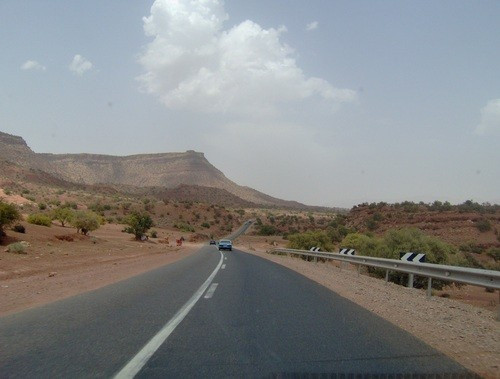Morocco's Forgotten Coast: Officials Uncover Alleged Terrorist Cell In Rif

Moroccan authorities arrested nine people in the northern area of Rif in connection with a terrorist plot, according to a Thursday report from the interior ministry.
The statement said authorities had uncovered “a plan hatched by members of the terrorist cell to install a training camp in the Rif mountains in order to carry out terrorist acts against public authorities," according to Agence France-Presse.
The suspects’ plans involved obtaining funds from commercial institutions in the city of Sale and setting up fake security checkpoints in the town of Ouzzane. Both cities are within 100 miles of Rabat, the capital.
Officials said the arrests led to seizures of several of the suspects’ possessions, including black flags representing al Qaeda.
If the allegations are true, it is not surprising that the insurgents would choose Rif as a base of operations.
Ever since colonial times, Rif -- which means “the edge of cultivated land,” according to al-Akhbar -- was distinct from the rest of Morocco. Residents there battled vehemently against European occupation, and, for several years during the early 1920s, Rif became an independent republic.
The area was retaken by colonialist troops in 1926 and eventually handed back to Morocco. Still today, in that strip of mountainous land along the Alboran Sea, a feeling of resentment against the Rabat government persists. This is exacerbated by the administration’s unbalanced allocation of resources; Rif has one of the highest poverty rates in the country.
Meanwhile, the rest of Morocco enjoys relative stability. It is a tourist hot spot just barely separated from Spain by the Strait of Gibraltar. Its government is an ally of the United States; the two countries have had a free-trade agreement with since 2004.
Western powers have an interest in Moroccan stability now more than ever, since a terrorist organization called al Qaeda in the Islamic Maghreb has lately put down roots in northern Mali, which that was overtaken by insurgents earlier this year. Suddenly, areas surrounding the Sahara desert are of greater geopolitical importance.
Another arrest this week shows just how closely European and Moroccan interests are intertwined. On Wednesday, German security forces captured a French national who is suspected of involvement in a 2003 attack; 45 people died when 12 suicide bombers set off their explosives across Casablanca, Morocco’s most populous city.
Of the nine arrested in connection with the Rif cell, AFP reports that five remain in custody. The other four are being detained for further investigation.
© Copyright IBTimes 2025. All rights reserved.






















